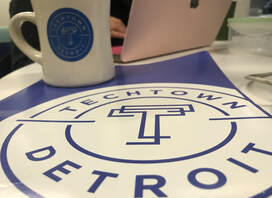After taking his economics class on a field trip to the poorest households in the village of Jobra, Bangladesh, Muhammad Yunus, social entrepreneur and Noble Prize recipient, made a profound discovery: it only requires 27 USD to lift a person out of poverty. After questioning locals as to why they did not acquire these small loans, he learned that banks were unwilling to provide minuscule loans to the poor for reasonable interest rates as the poor due to their perceived high risk. As such, Muhammed Yunus decided to act with the urge to eradicate poverty from the world; his faith in humanity compelled him to provide these $27 loans to 42 village women out of his own pocket as he believed that when given the opportunity, they would repay his loans. His revolutionary and radical idea disrupted the norms of credit: he did not require collateral. Unlike banks, Muhammed relied on mutual trust and allowed those with little financial means who are unable to qualify for minor bank loans to receive the money necessary to create their own profitable enterprises—microcredit. Due to the incredible success of his loans, Muhammad propelled his venture forward, founding the Grameen Bank—a bank that supports small businesses and entrepreneurs by providing microloans without requiring collateral. As of 2017, $20.92 billion USD in loans of which $19.02 billion USD has been repaid. Muhammed Yunus is exemplar model of a social entrepreneur: he discovered a pain and need in society, innovated a radical solution, and utilized his resources to catalyze large, positive social impact.
Social Entrepreneurs.
Social entrepreneurs and innovators share common DNA: they seek to create systematic change and create sustainable impact, hold themselves accountable to the constituencies served, constantly question the status quo, discover root causes for social issues, merge their personal experiences with social issues to create change, are unafraid to take calculated risks, are extremely creative, and utilize their resources to create positive social impact. The enterprises created are designed around innovations that can range from being disruptive—fundamentally different products or service that has a significant impact on an existing market and displace former markets, or even catalytic—a disruptive innovation that offers products and services that are more economically feasible and need underserved needs.
Responsibility.
I sincerely believe that we all have the power to pursue opportunities in which we can aid the world and create social value. As Peter Parker’s Uncle Ben wisely stated, “with great power comes great responsibility;” with this power, comes the responsibility to not only discuss these social innovations, but to act. The amount of injustices in our world is ridiculously enumerable, and as Muhammed Yunus demonstrates, at times it can require as little as $27 dollars to save the future of a person’s life. Whether it be changing one person’s life for the better or eventually changing hundreds of thousands of lives, we need to make a difference. The essential next question becomes what problem should we fix, and how would we go about doing this?
The process—demonstrated by Detroit.
Detroit is a hub of entrepreneurship, a necessary adaptation following their economic crisis of declaring bankruptcy. A skill necessary to acquire in order to survive and make it through successful. From my time in Detroit, the myth behind the “social entrepreneur” has already been dispelled as I am now aware of the complex steps and process behind perusing innovative, sustainable solutions to address critical social problems. Most importantly, I am beginning to understand the importance of using business principles for the purpose of creating social value. This cyclical process can be summarized: Evaluate social needs and personal experiences, identify a social problem, educate yourself about the problem, generate an idea, create a Business Model (find investors, create a plan, consider scaling and replication), create a prototype, test and evaluate the impact, and then implement change. One thing to emphasize is that this process is nonlinear and with each step it is essential to revise and question the process and motivation behind each decision.
One of Detroit’s Answers.
One such social enterprise that I have been fortunate enough to work with is TechTown Detroit, a non-profit technology accelerator and incubator that provides those with little financial means to launch and grow their businesses by providing event space, networking connections, workshops, mentorship programs, and coworking space. They have tackled the social need of the lack of low-cost mentorship and workspace, and have already successfully created social impact by serving more than 1900 companies and leveraging more than $130 million in start-up capital. What is especially interesting about TechTown is that they enhance and foster the growth of other social enterprises. For example, while shadowing our mentor Joanna, I was able to consult and aid a local company that TechTown was preparing for an upcoming pitch contest, Detroit Demo Day: Einstein by Design—a social enterprise that provides customized technology camps for younger children, inspiring future entrepreneurs. Not only does TechTown support fellow social entrepreneurs, but they also invest in the younger generation via their Innovation Studio program that is in partnership with Wayne State University. The program strives to inspire and close the confidence gap and encourage people to transform their abstract ideas into concrete products and services that can enter the business market. TechTown is only one of hundreds of social enterprises aiding in improving upon Detroit as a city.
My Turn.
I hope to use these social enterprises as guides and resources, inspiration for the future, and as motivation to continue to provide positive social impact; to honor my responsibility to act.


 RSS Feed
RSS Feed
